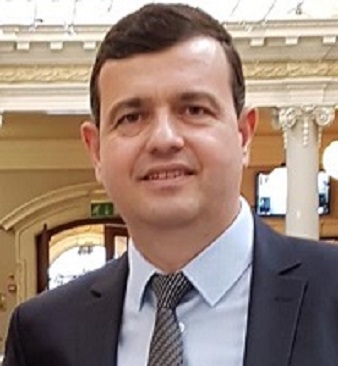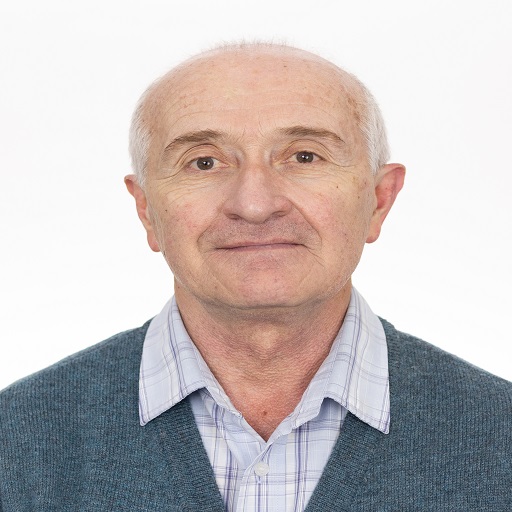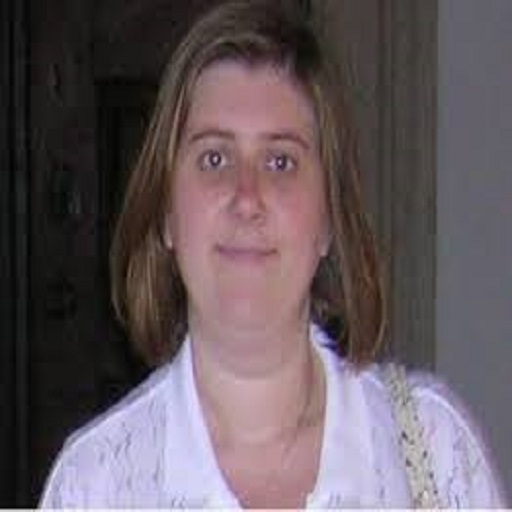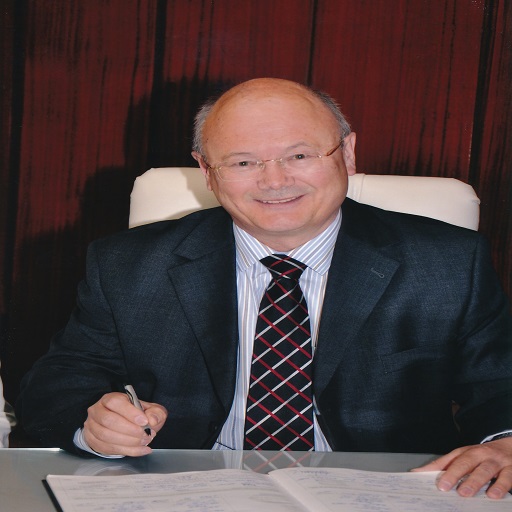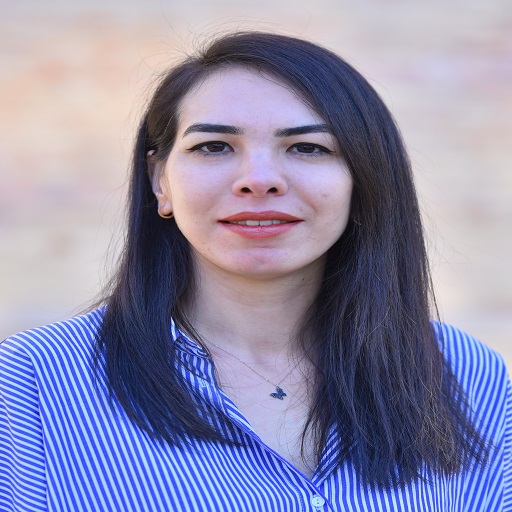
Prof. Yingxu Wang
President, International Institute of Cognitive Informatics and Cognitive Computing (ICIC)Director, Laboratory for Computational Intelligence, Cognitive Systems, and Software Science
Dept. of Electrical and Computer Engineering
Schulich School of Engineering and Hotchkiss Brain Institute
University of Calgary
Canada
Plenary Lecture
A Proof of Goldbach Conjecture by Mirror Prime Decomposition

Prof.Yingxu Wang
President, International Institute of Cognitive Informatics and Cognitive Computing (ICIC)
Director, Laboratory for Computational Intelligence, Cognitive Systems, and Software Science
Dept. of Electrical and Computer Engineering
Schulich School of Engineering and Hotchkiss Brain Institute
University of Calgary
Canada
Email: yingxu@ucalgary.ca
Abstract:
This work presents a formal proof of Goldbach conjecture based on a novel theory of Mirror-Prime
Decomposition (MPD) for arbitrary even integers. A new concept of mirror primes $$ \Bbb{P}_{μ}\subset \Bbb{P} \times \Bbb{P} $$ is introduced
as a set of pairs of primes that are symmetrically adjacent to any pivotal even number $$ n_{e} \in \Bbb{N}_{e} \subset \Bbb{N} $$ on both sides
in finite distance k bounded by 1 ≤ k ≤ (ne/2) − 2. As a counterpart of the Euclidean Fundamental Theorem of
Arithmetic for natural number factorization, the MPD theory enables arbitrary even number decomposition by
mirror primes. MPD paves a way to prove the Goldbach conjecture, i.e., where denoted by the big-R calculus
for representing recursive structures and manipulating recursive functions. An algorithm of Goldbach conjecture
testing is designed for demonstrating the formal proof of the Goldbach theorem. i.e., $$\forall 4 \leq \frac{n_{e}}{2}<\infty$$,
$$n_{e}= f(p^\frac{n_{e}}{2}_{\mathrm{μ}^{-}}, p^\frac{n_{e}}{2}_{\mathrm{μ}^{+}} ) = R_{k=1}^{(\frac{n_{e}}{2}-2)}(p^\frac{n_{e}}{2}_{\mathrm{μ}^{-}}+ p^\frac{n_{e}}{2}_{\mathrm{μ}^{+}} )$$,
where
$$(p^\frac{n_{e}}{2}_{\mathrm{μ}^{-}}= \frac{n_{e}}{2}-k, p^\frac{n_{e}}{2}_{\mathrm{μ}^{+}}+k) \in \Bbb{P}_{μ}$$
denoted by the big-R calculus for representing recursive structures and manipulating recursive functions. An
algorithm of Goldbach conjecture testing is designed for demonstrating the formal proof of the Goldbach
theorem.
Biography:
Yingxu Wang is professor of cognitive informatics, brain science, software science, and denotational mathematics, President of International Institute of Cognitive Informatics and Cognitive Computing (ICIC, http://www.ucalgary.ca/icic/). He is a Fellow of ICIC, a Fellow of WIF (UK), a P.Eng of Canada, and a Senior Member of IEEE and ACM. He is/was visiting professor (on sabbatical leave) at Oxford University (1995), Stanford University (2008|2016), UC Berkeley (2008), and MIT (2012), respectively. He received a PhD in Computer Science from the Nottingham Trent University in 1998 and has been a full professor science 1994. He is the founder and steering committee chair of the annual IEEE International Conference on Cognitive Informatics and Cognitive Computing (ICCI*CC) since 2002. He is founding Editor-in-Chief of Int’l Journal of Cognitive Informatics & Natural Intelligence, founding Editor-in-Chief of Int’l Journal of Software Science & Computational Intelligence, Associate Editor of IEEE Trans. on SMC - Systems, and Editor-in-Chief of Journal of Advanced Mathematics & Applications. Dr. Wang is the initiator of a few cutting-edge research fields such as cognitive informatics, denotational mathematics (concept algebra, process algebra, system algebra, semantic algebra, inference algebra, big data algebra, fuzzy truth algebra, and fuzzy probability algebra, visual semantic algebra, granular algebra), abstract intelligence (?I), the neural circuit theory, mathematical models of the brain, cognitive computing, cognitive learning engines, cognitive knowledge base theory, and basic studies across contemporary disciplines of intelligence science, robotics, knowledge science, computer science, information science, brain science, system science, software science, data science, neuroinformatics, cognitive linguistics, and computational intelligence. He has published 400+ peer reviewed papers and 29 books in aforementioned transdisciplinary fields. He has presented 30 invited keynote speeches in international conferences. He has served as general chairs or program chairs for more than 20 international conferences. He is the recipient of dozens international awards on academic leadership, outstanding contributions, best papers, and teaching in the last three decades. He is one of the popular scholars according to the big data system of ResearchGate worldwide stats.

Prof. Minghua Chen
TPC Co-Chair, General Chair, and Steering Committee Chair of ACM e-Energy
City University of Hong Kong,Kowloon Tong, Kowloon, Hong Kong Plenary Lecture
Synthesizing Distributed Algorithms for Combinatorial Network Optimization

Prof. Minghua Chen
City University of Hong Kong, Kowloon Tong, Kowloon, Hong Kong
E-mail: minghua.chen@cityu.edu.hk
Abstract:
Many important network design problems are fundamentally combinatorial optimization problems. A large number of such problems, however, cannot readily be tackled by distributed algorithms. We develop a Markov approximation technique for synthesizing distributed algorithms for network combinatorial problems with near-optimal performance. We show that when using the log- sum-exp function to approximate the optimal value of any combinatorial problem, we end up with a solution that can be interpreted as the stationary probability distribution of a class of time-reversible Markov chains. Selected Markov chains among this class, or their carefully-perturbed versions, yield distributed algorithms that solve the log-sum-exp approximated problem. The Markov Approximation technique allows one to leverage the rich theories of Markov chains to design distributed schemes with performance guarantees. By case studies, we illustrate that it not only can provide fresh perspective to existing distributed solutions, but also can help us generate new distributed algorithms in other problem domains with provable performance, including cloud computing, edge computing, and IoT scheduling.
Biography:
Minghua Chen received his B.Eng. and M.S. degrees from the Department of Electronic Engineering at Tsinghua University. He received his Ph.D. degree from the Department of Electrical Engineering and Computer Sciences at University of California Berkeley. He is currently a Professor of School of Data Science, City University of Hong Kong. He received the Eli Jury award from UC Berkeley (presented to a graduate student or recent alumnus for outstanding achievement in the area of Systems, Communications, Control, or Signal Processing) and several best paper awards, including IEEE ICME Best Paper Award in 2009, IEEE Transactions on Multimedia Prize Paper Award in 2009, ACM Multimedia Best Paper Award in 2012, and IEEE INFOCOM Best Poster Award in 2021. He is currently a Senior Editor for IEEE Systems Journal and an Executive Member of ACM SIGEnergy (as the Award Chair). His recent research interests include online optimization and algorithms, machine learning in power systems, intelligent transportation systems, distributed optimization, and delay-critical networked systems. He is an ACM Distinguished Scientist and an IEEE Fellow.

Prof. Javier F Rosenblueth
Institute National Autonomous University of Mexico,Mexico Plenary Lecture
Second Order Constraint Qualifications in Optimal Control

Prof. Javier F Rosenblueth
National Autonomous University of Mexico, Mexico
E-mail: jfrl@unam.mx
Abstract:
For constrained problems in mathematical programming, second order conditions for optimality are well established under different constraint qualifications such as linearly independence, normality, properness or regularity. For optimal control problems involving equality and inequality constraints, some implications between the corresponding constraint qualifications may fail to hold and, in this talk, we explain how new assumptions are required to provide second order necessary conditions for optimality.
Biography:
Professor Rosenblueth holds a BSc in Mathematics from the National Autonomous University of Mexico and a PhD in Control Theory from the Imperial College of Science, Technology and Medicine, London, UK. He worked as a researcher in the Centre for Research in Mathematics, Guanajuato, Mexico and, since 1989, joined the Applied Mathematics and Systems Research Institute of the National Autonomous University of Mexico. He is Full Professor and currently a member of the Mathematical Physics Department. He has published more than 90 refereed papers, has spent sabbatical visits at the Weizmann Institute of Science, Rehovot, and Technion Israel Institute of Technology, Haifa, Israel; Imperial College and University of Bath, UK; University of Porto, Portugal, amongst others. He is associate editor of several refereed journals and has participated in numerous international conferences. His main research interests are in optimal control theory, calculus of variations, variational analysis, and optimization.

Prof. Elias C. Aifantis
Mercator Fellow, Friedrich-Alexander University, Erlangen-Nuremberg,90762 Fürth, Germany Plenary Lecture
Model Analogies Between Mechanics and Electrodynamics

Prof. Elias C. Aifantis
Mercator Fellow, Friedrich-Alexander University, Erlangen-Nuremberg,
90762 Fürth, Germany
E-mail:
Abstract:
Beyond the formal analogies between Newton's law of gravitation and Coulomb's law of electrostatics, there is a number of follow-up developments in electrodynamics and the theory of circuits which resemble preceding developments in classical mechanics and the theory of structures. After a brief illustration of such examples, it is shown that this recipe can also be applied to include the case of generalized mechanics and its electrodynamics counterpart. In particular, a nonlocal gradient extension of Newton's and Coulomb's laws is discussed, along with a similar discussion of Hooke's and Ohm's laws as applied to the theory of mechanical trusses/frames and electrical circuits, respectively.
Biography:
Elias C. Aifantis is currently an Emeritus Professor of Mechanics at Aristotle University of Thessaloniki/Greece and Michigan Technological University/USA, as well as Mercator fellow at Friedrich-Alexander University/Germany and a Distinguished Professor at Beijing University of Civil Engineering and Architecture/China. Formerly, he has also been a Distinguished Faculty Advisor at King Abdulaziz University/Saudi Arabia, Distinguished Visiting Expert at ITMO University/Russia and Southwest Jiaotong University/China, as well as MegaGrant Director at Togliatti State University /Russia. He has promoted highly interdisciplinary work in mechanics of materials by bringing into the field of solid mechanics ideas from diffusion theory, chemical reactions, and nonlinear physics. He has coined the terms dislocation patterning, material instabilities, gradient plasticity/elasticity, chemo/nanomechanics, and pioneered internal length gradient (ILG) theories in these fields. Currently, he is extending the ILG framework to revisit electromagnetism and Maxwell’s equations, as well as gravitation and Newton’s Law. He has published over 650 articles and received about 14,700 citations with 58 h-index (Scopus); 13,580 citations with 57 h-index (Web of Science); 21,880 citations with 70 h-index (Google Scholar). He is included in the ISI Web of knowledge list of the world’s most highly cited authors in engineering


